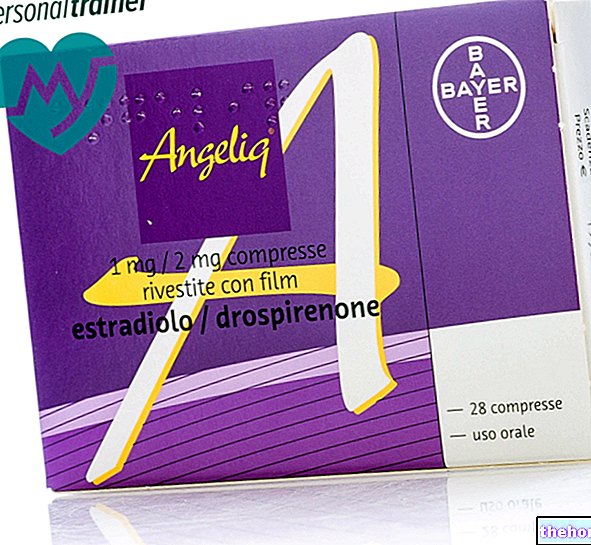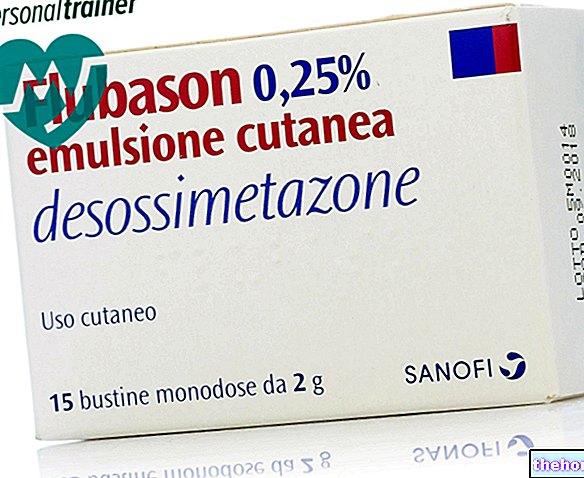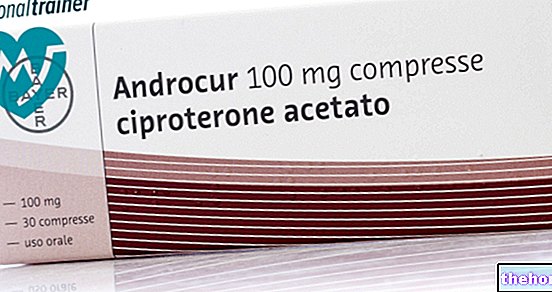Active ingredients: Dextromethorphan (dextromethorphan hydrobromide), 2,4-dichlorobenzyl alcohol
Neo Borocillin Cough 10 mg + 1.2 mg lozenges
Why is Neo Borocillin Cough used? What is it for?
Neo Borocillina Cough contains the active ingredients dextromethorphan hydrobromide and 2,4-dichlorobenzyl alcohol. Dextromethorphan belongs to the category of sedative (calming) cough drugs; 2,4-dichlorobenzyl alcohol belongs to a category of drugs called antiseptics (antibacterials) of the oropharyngeal cavity (mouth and throat).
Neo Borocillina Cough is used as a sedative for dry cough (calms the cough) and for the treatment of symptoms of inflammatory diseases of the mouth and throat.
Contraindications When Neo Borocillin Cough should not be used
DO NOT take Neo Borocillin Cough:
- if you are allergic to dextromethorphan, 2,4-dichlorobenzyl alcohol or any of the other ingredients of this medicine;
- if you have asthma, chronic bronchitis (COPD), pneumonia, breathing difficulties or respiratory depression;
- if you have cardiovascular disease or high blood pressure;
- if you suffer from hyperthyroidism (increased function of the thyroid gland);
- if you have diabetes;
- if you suffer from increased pressure in the eye (glaucoma);
- if you have urinary problems caused by an enlarged prostate or other obstruction of the genital organs or urinary tract;
- if you have obstructions in the esophagus, stomach or intestines;
- if you have severe liver disease;
- if you have epilepsy;
- if you are taking monoamine oxidase inhibitor antidepressants (MAOIs) or if you have stopped this treatment for less than two weeks (see section "Other medicines and Neo Borocillin Cough");
- if you are pregnant, especially in the first trimester (see section "Pregnancy and breastfeeding");
- if you are breast-feeding (see section "Pregnancy and breast-feeding");
- if you suffer from phenylketonuria (due to the presence of aspartame among the excipients; see section "Neo Borocillina Coosse contains aspartame");
- if you have hereditary problems of intolerance to some sugars (due to the presence of sucrose among the excipients; see the section "Neo Borocillina Coosse contains sucrose");
- in children under 12 years of age.
Precautions for use What you need to know before taking Neo Borocillin Cough
Take Neo Borocillin Cough with caution and only after consulting your doctor:
- if you have an irritating cough that produces a lot of mucus (phlegm);
- if you have been coughing for a long time (chronic cough)
- if you have neurological diseases associated with a reduced cough reflex (e.g. stroke, Parkinson's disease and dementia);
- if you have a tendency to abuse or dependence on alcohol and / or drugs;
- if you have liver disease;
- if you have kidney disease;
- if you have a rare blood disorder called mastocytosis.
If in doubt, consult your doctor. It is advisable to consult your doctor even if these problems have already occurred in the past.
The use, especially if prolonged, of products for topical use can give rise to allergy phenomena (sensitization). In this case, stop the treatment and consult your doctor.
Children
Neo Borocillina Cough is contraindicated in children under 12 years of age.
Interactions Which drugs or foods can modify the effect of Neo Borocillin Cough
Tell your doctor or pharmacist if you are taking, have recently taken or might take any other medicines, especially if you take:
- drugs belonging to the class of monoamine oxidase inhibitors (MAOIs) (see section 2 "DO NOT take Neo Borocillin Cough") such as:
- medicines for the treatment of Parkinson's disease (for example selegiline or rasagiline);
- drugs for the treatment of depression (isocarboxazide, nialamide, phenelzine, tranylcypromine, iproniazid, iproclozide, moclobemide and toloxatone);
- antidepressant drugs other than monoamine oxidase inhibitors (MAOIs), such as selective serotonin reuptake inhibitors (e.g. fluoxetine, paroxetine) or tricyclic antidepressant drugs;
- drugs for the treatment of anxiety or insomnia (hypnotics, sedatives or anxiolytics), as they can increase the effects of dextromethorphan on the central nervous system;
- drugs that inhibit the cytochrome P450-2D6 enzyme system in the liver (for example: amiodarone, quinidine, fluoxetine, haloperidol, paroxetine, propafenone, thioridazine, cimetidine, ritonavir, berberine, bupropion, cinacalcet, flecainide, terbinafine) an increase in the concentration of dextromethorphan in the blood;
- mucolytic drugs, as the reduction of the cough reflex can lead to an (excessive) accumulation of mucus.
as serious side effects on the central nervous system (excitation, high fever, disturbed breathing and circulation) can occur, even when treatment with these drugs has been stopped for less than 2 weeks;
Neo Borocillin Cough with alcohol
If you are taking Neo Borocillin Cough you should avoid the use of alcoholic beverages and medicines containing alcohol: alcohol increases the sedative effect of dextromethorphan with possible reduction of the level of alertness (see section "Driving and using machines" ).
Warnings It is important to know that:
Pregnancy and breastfeeding
If you are pregnant or breast-feeding, think you may be pregnant or are planning to have a baby, ask your doctor or pharmacist for advice before taking this medicine.
Pregnancy
Do not use Neo Borocillin Cough in the first trimester of pregnancy; in the following months the drug can be taken only in case of need, after consulting the doctor and having evaluated with him the benefit / risk ratio in your case.
Feeding time
Do not use Neo Borocillin Cough while breastfeeding as it is not known whether the drug passes into breast milk and a depressive effect on newborn breathing cannot be excluded.
Driving and using machines
Neo Borocillina Cough can cause drowsiness and / or dizziness, which can affect the ability to drive and use machines, especially in conjunction with alcohol or other medicines that can slow reaction times.
Neo Borocillin Cough contains aspartame
This medicine contains a source of phenylalanine. It can be harmful to you if you have phenylketonuria.
Neo Borocillin Cough contains sucrose
If you have been told by your doctor that you have an intolerance to some sugars, contact your doctor before taking this medicinal product.
NOTES ON HEALTH EDUCATION
Dry cough is a symptom that frequently accompanies colds and flu states; it is due to the inflammatory state of the respiratory tract and is not accompanied by the production of mucus and / or phlegm.
Dry cough increases in frequency and intensity during the night when the patient is lying down, disturbing sleep and worsening the inflamed airways.
The presence of dry air, open mouth breathing and the supine position stimulate coughing fits. To prevent access, it is advisable to properly humidify the rooms and promote nasal breathing.
Dose, Method and Time of Administration How to use Neo Borocillin Cough: Dosage
Always take this medicine exactly as described in this leaflet or as directed by your doctor or pharmacist. If in doubt, consult your doctor or pharmacist.
The recommended dose in adults and children over 12 years is: one tablet, to be dissolved slowly in the mouth, every 2-3 hours up to a maximum of 8 tablets per day.
Do not exceed the indicated doses.
Do not take for more than 5-7 days.
Consult your doctor if the disorder occurs repeatedly or if you have noticed any recent changes in its characteristics.
Overdose What to do if you have taken an overdose of Neo Borocillin Cough
Tell your doctor immediately or go to the nearest hospital if you have accidentally taken too much Neo Borocillin Cough.
If you take too much Neo Borocillin Cough, known side effects may occur more frequently or severely: nausea, vomiting, visual disturbances and nervous system disorders such as staggering, dizziness, excitement, increased muscle tone, mental confusion , sleepiness, low blood pressure and increased heart rate. In extreme cases, inability to urinate and difficulty in breathing may occur.
If you have any further questions on the use of Neo Borocillina Cough, ask your doctor or pharmacist.
Side Effects What are the side effects of Neo Borocillin Cough
Like all medicines, Neo Borocillin Cough can cause side effects, although not everybody gets them.
Insufficient data are available to establish the frequency of all single effects listed.
The following side effects may occur:
- hypersensitivity reactions (including anaphylactic reaction, angioedema, urticaria, pruritus, rash and erythema)
- nausea, vomiting, stomach and / or intestinal upset
- dizziness,
- drowsiness, hallucinations, fatigue
- difficulty in breathing,
- allergic skin reactions,
- reduced appetite,
- psychic dependence: cases of abuse and dependence on dextromethorphan have been reported.
Reporting of side effects If you get any side effects, talk to your doctor or pharmacist. This includes any possible side effects not listed in this leaflet. You can also report side effects directly via the national reporting system at: http://www.armaco.gov.it/it/responsabili. By reporting side effects you can help provide more information on the safety of this medicine.
Expiry and Retention
Keep this medicine out of the sight and reach of children.
Do not take this medicine after the expiry date which is stated on the package after "EXP". The expiry date refers to the last day of that month.
Store at a temperature below 30 ° C.
Do not take this medicine if the pack has been opened or damaged.
Do not throw any medicines via wastewater or household waste. Ask your pharmacist how to throw away medicines you no longer use. This will help protect the environment.
It is important to always have the information about the medicine available, so keep both the box and the package leaflet.
Other information
What Neo Borocillin Cough contains
- The active ingredients are dextromethorphan hydrobromide and 2,4-dichlorobenzyl alcohol. Each tablet contains 10 mg of dextromethorphan hydrobromide (adsorbed on magnesium trisilicate) and 1.2 mg of 2,4-dichlorobenzyl alcohol.
- The other ingredients are: freshflavor aroma, ammonium glycyrrhizinate, magnesium stearate, aspartame, compressible sugar.
What Neo Borocillin Cough looks like and contents of the pack
Neo Borocillina Cough comes in the form of tablets. The contents of the package are 16, 18, 20 tablets.
Not all pack sizes may be marketed.
Source Package Leaflet: AIFA (Italian Medicines Agency). Content published in January 2016. The information present may not be up-to-date.
To have access to the most up-to-date version, it is advisable to access the AIFA (Italian Medicines Agency) website. Disclaimer and useful information.
01.0 NAME OF THE MEDICINAL PRODUCT
NEO COUGH BOROCILLIN 10 MG + 1.2 MG TABLETS
02.0 QUALITATIVE AND QUANTITATIVE COMPOSITION
Every tablet contains:
• DEXTROMETORPHAN HYBROMIDRATE .................... 10 mg
(adsorbed on magnesium trisilicate)
• 2,4-DICHLOROBENZYL ALCOHOL ................................ 1.2 mg
Excipients with known effects: aspartame (E 951), compressible sugar
For the full list of excipients, see section 6.1
03.0 PHARMACEUTICAL FORM
Pads.
04.0 CLINICAL INFORMATION
04.1 Therapeutic indications
Sedative of cough and antiseptic of the oropharyngeal cavity.
04.2 Posology and method of administration
Adults and children over 12 years: slowly dissolve one tablet in the mouth every 2-3 hours, up to a maximum of 8 tablets per day.
Do not exceed the recommended dose.
04.3 Contraindications
Hypersensitivity to the active substances or to any of the excipients.
Bronchial asthma, COPD, pneumonia, breathing difficulties, respiratory depression, cardiovascular diseases, hypertension, hyperthyroidism, diabetes, glaucoma, prostatic hypertrophy, stenosis of the gastrointestinal and urogenital tract, epilepsy, severe liver disease.
Do not administer to children under 12 years of age.
Do not use at the same time or in the two weeks following treatment with MAO inhibitor antidepressant drugs.
Since the product contains aspartame, a source of phenylalanine, it is contraindicated in subjects suffering from phenylketonuria; it also contains sugar, therefore it is contraindicated in case of hereditary intolerance to fructose, in the syndrome of glucose / galactose malabsorption and in sucrase / isomaltase deficiency.
Pregnancy, particularly in the first trimester, lactation (see section 4.6).
04.4 Special warnings and appropriate precautions for use
In the case of an irritating cough with significant mucus production (e.g. in patients with diseases such as bronchiectasis and cystic fibrosis) or in patients with neurological diseases associated with a marked reduction in the cough reflex (such as stroke, Parkinson's disease and dementia), treatment with Neo Borocillin Cough lozenges as a cough suppressant should be administered with particular caution and only on medical advice after a "careful risk-benefit assessment (see section 4.5).
There is limited information on the use of dextromethorphan in patients with impaired hepatic or renal function. Therefore, Neo Borocillin Cough lozenges should be administered with caution in such patients, especially in patients with severe impairment.
Due to the potential for histamine release, the use of Neo Borocillin Cough lozenges should be avoided in case of mastocytosis.
A chronic cough can be an early symptom of asthma and therefore Neo Borocillin Cough Pads are not indicated for chronic cough suppression, particularly in children.
Neo Borocillin Cough lozenges should be used with caution in patients taking serotonergic drugs (other than MAO inhibitor drugs), such as selective serotonin reuptake inhibitors (SSRIs) (e.g. fluoxetine, paroxetine) or tricyclic antidepressant drugs (see section 4.5 ).
The use, especially if prolonged, of products for topical use can give rise to sensitization phenomena. In this case it is necessary to interrupt the treatment and consult the doctor in order to establish any suitable therapy.
After 5-7 days of treatment, without noticeable results, consult your doctor.
Important information about some of the excipients
The product contains sugar, which must be taken into account in case of diabetes or low-calorie diets.
The product contains aspartame, a source of phenylalanine (see section 4.3).
It is not advisable to drink alcohol during therapy.
Dextromethorphan can be mildly addictive. Following prolonged use (e.g. exceeding the recommended treatment period), patients may develop tolerance to the drug, as well as mental and physical dependence.
Patients with a tendency to abuse or dependence should take Neo Borocillin Cough for short periods and under close medical supervision. There have been reports of abuse of dextromethorphan, predominantly in adolescents.
04.5 Interactions with other medicinal products and other forms of interaction
Dextromethorphan possesses weak serotonergic properties. Dextromethorphan may therefore lead to an increased risk of serotonergic toxicity (serotonin syndrome), especially when taken in conjunction with other serotonergic agents, such as MAO inhibitors or SSRIs or tricyclic antidepressants. Especially pre-treatment or concomitant treatment with drugs that impair serotonin metabolism, such as antidepressant drugs of the MAO inhibitor type, may induce the development of a serotonin syndrome with the following characteristic symptoms: neuromuscular hyperactivity (e.g. tremor, spasm clonic, myoclonus, increased reflex response and stiffness of pyramidal origin), hyperactivity of the autonomic nervous system (e.g. diaphoresis, fever, tachycardia, tachypnea, mydriasis) and altered mental status (e.g. agitation, excitement, confusion) (see section 4.3 (MAO inhibitor drugs) and 4.4).
The concomitant administration of drugs with an inhibitory effect on the central nervous system such as hypnotics, sedatives or anxiolytics, or the intake of alcohol, can lead to additive effects.
Concomitant administration of drugs, such as amiodarone, quinidine, fluoxetine, haloperidol, paroxetine, propafenone, thioridazine, cimetidine, ritonavir, berberine, bupropion, cinacalcet, flecainide and terbinafine, which inhibit the enzyme system of cytochrome P450-2 , the metabolism of dextromethorphan, can lead to an increase in the plasma concentration of dextromethorphan. Even if they are no longer taken at the moment, these effects can occur if these medicines have been taken recently.
If dextromethorphan is used in combination with mucolytics in patients with pre-existing diseases of the respiratory tract, such as cystic fibrosis and bronchiectasis, suffering from mucus hypersecretion, the reduced cough reflex can lead to a (severe) accumulation of mucus.
04.6 Pregnancy and breastfeeding
Neo Borocillin Cough lozenges should not be used during the first three months of pregnancy; in the following months the drug must be administered only in case of real need and under the direct supervision of the doctor.
Since excretion of the drug in breast milk is not known and a respiratory depressive effect on the newborn cannot be excluded, Neo Borocillin Cough lozenges are contraindicated during breastfeeding.
04.7 Effects on ability to drive and use machines
Since the product can cause drowsiness and / or dizziness (especially in conjunction with the intake of alcohol or other medicines that can reduce reaction times), this must be taken into account by those who may drive vehicles or wait for operations requiring integrity of the degree of vigilance.
04.8 Undesirable effects
Insufficient data are available to establish the frequency of the listed effects.
Disorders of the immune system
Hypersensitivity reactions (including anaphylactic reaction, angioedema, urticaria, pruritus, rash and erythema)
Metabolism and nutrition disorders
Reduction of appetite
Psychiatric disorders
Hallucinations
Abuse and dependence on dextromethorphan
Nervous system disorders
Drowsiness
Ear and labyrinth disorders
Dizziness
Respiratory, thoracic and mediastinal disorders
Respiratory depression
Gastrointestinal disorders
Nausea, vomiting, gastrointestinal disturbances
General disorders and administration site conditions
Fatigue
Reporting of suspected adverse reactions.
Reporting of suspected adverse reactions occurring after authorization of the medicinal product is important as it allows continuous monitoring of the benefit / risk balance of the medicinal product. Healthcare professionals are asked to report any suspected adverse reactions via the national reporting system. "address: www.agenziafarmaco.gov.it/it/responsabili.
04.9 Overdose
Symptoms
In case of overdose, known side effects may occur with greater frequency or severity: nausea, vomiting, visual disturbances and central nervous system disorders such as ataxia, dizziness, excitement, increased muscle tone, mental confusion, drowsiness, hypotension and tachycardia.
In extreme cases, urinary retention and respiratory depression can occur.
Treatment
If necessary, seek intensive medical care (in particular intubation, ventilation).
It may be necessary to take precautions to safeguard heat loss and replenish fluids.
Intravenous administration of naloxone may antagonize the effects of dextromethorphan on the central nervous system.
If necessary, carry out gastric lavage with stable circulation.
Do not administer centrally acting emetics.
05.0 PHARMACOLOGICAL PROPERTIES
05.1 Pharmacodynamic properties
Pharmacotherapeutic group: Cough suppressants, excluding combinations with expectorants - Opium alkaloids and its derivatives - ATC code: R05DA20.
Dextromethorphan hydrobromide (hydrobromide of (+) - 3-methoxy-N-methylmorphinane) is an antitussive substance with activity similar to that of: zipeprol, codeine, codethyline, diphenhydramine and pentoxiverine.
The antitussive action appears to be due to the inhibition of the higher nervous centers. The drug exhibits a notable cough inhibiting effect similar to that of codeine and has no sedative, analgesic, muscle relaxant or bronchoconstrictive properties.
2,4-dichlorobenzyl alcohol is an antibacterial drug with antiseptic action against numerous pathogenic germs of the oral cavity.
05.2 Pharmacokinetic properties
Dextromethorphan hydrobromide administered orally is totally and rapidly absorbed in the gastrointestinal tract, metabolized in the liver and excreted partly unchanged and partly in demethylated forms with pharmacological activity similar to the starting drug. Neither codeine nor morphine appear among the metabolites. Elimination occurs in the urine and faeces.
2,4-dichlorobenzyl alcohol acts as a bacteriostatic at a concentration of 2%.
05.3 Preclinical safety data
dextromethorphan hydrobromide
The toxicity tests show good tolerability with no negative effects on renal function, respiration, blood pressure and gastrointestinal tract at the usual therapeutic doses, even for prolonged treatments.
Side effects (sleepiness, dizziness, gastrointestinal disturbances) are rare and minor.
2,4-dichlorobenzyl alcohol has very little toxicity; administered to newborn rats orally, at doses of 50, 250 and 500 mg / kg / day for 3 weeks, it does not affect growth; even at the higher posology there are no alterations in the blood count, nor lesions in the macro and microscopic anatomical-pathological finding.
Local toxicity: the instillation in the eye of the rabbit of 0.08% aqueous solutions for 4 consecutive days does not cause any irritation: applied on the skin or administered intradermally in the guinea pig, respectively for several weeks, does not show any skin sensitizing action .
06.0 PHARMACEUTICAL INFORMATION
06.1 Excipients
Aroma freshflavor, ammonium glycyrrhizinate, magnesium stearate, aspartame (E 951), compressible sugar.
06.2 Incompatibility
None known.
06.3 Period of validity
3 years.
06.4 Special precautions for storage
Store at a temperature below 30 ° C.
06.5 Nature of the immediate packaging and contents of the package
Blister pack consisting of white polyvinyl chloride / polyethylene / polyvinylidene chloride and aluminum.
The contents of the package are 16, 18, 20 tablets. Not all pack sizes may be marketed.
06.6 Instructions for use and handling
No special instructions.
07.0 MARKETING AUTHORIZATION HOLDER
ALFA WASSERMANN S.p.A.
Via E. Fermi, n.1 - Alanno (PE)
08.0 MARKETING AUTHORIZATION NUMBER
Neo Borocillina Cough "10 mg + 1.2 mg tablets" - 20 tablets in blister PVC-PE-PVDC / AL -AIC n. 027081049
Neo Borocillina Cough "10 mg + 1.2 mg tablets" - 16 tablets in blister PVC-PE-PVDC / AL - AIC n. 027081076
Neo Borocillina Cough "10 mg + 1.2 mg tablets" - 18 tablets in blister PVC-PE-PVDC / AL - AIC n. 027081088
09.0 DATE OF FIRST AUTHORIZATION OR RENEWAL OF THE AUTHORIZATION
Date of first authorization: 15 September 1988
Date of most recent renewal: 01 June 2010
10.0 DATE OF REVISION OF THE TEXT
June 25, 2016




























